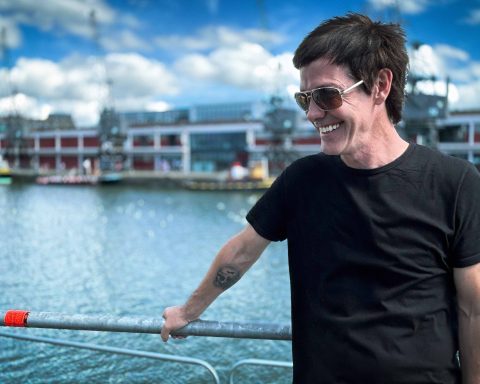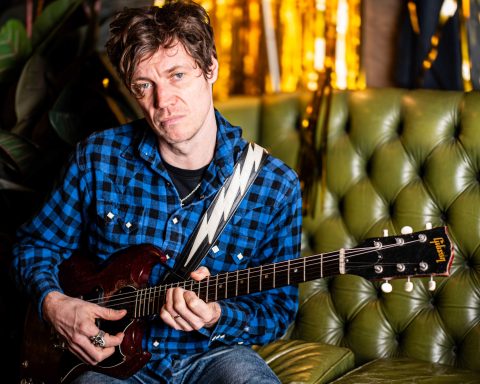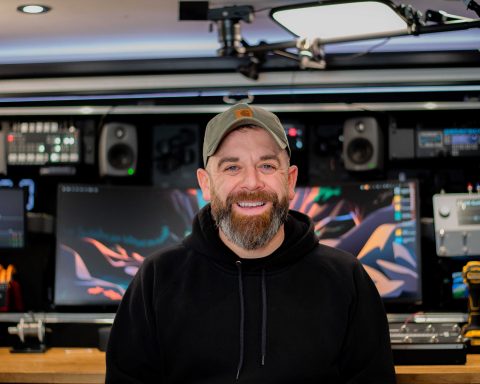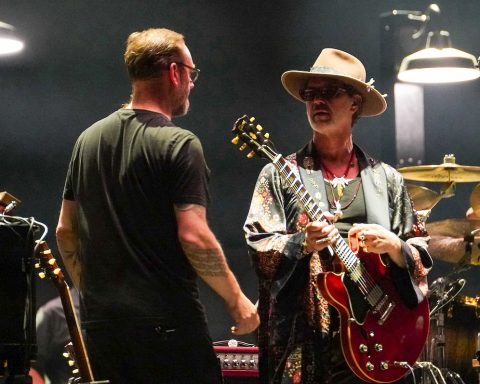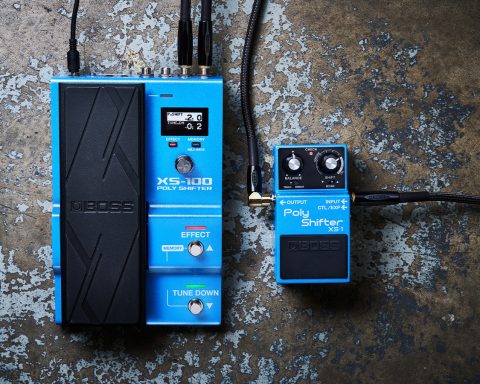Bob Mackenzie doesn’t just engineer records—he sculpts sound. As the right-hand man in the studio of acclaimed artist and producer James Blake, Mackenzie has carved out a reputation as one of the most inventive young engineers working today. His ability to shape truly original textures and inspire jaw-dropping moments within a track has earned him a place at the cutting edge of modern music production. In this exclusive interview, we go behind the scenes to uncover how he’s using BOSS pedals—not just as tools but as instruments in their own right—to push sonic boundaries and create unforgettable recordings.
Creative Tools for Pros
Mackenzie’s process is hands-on, tactile, and rooted in spontaneity. When someone’s tracking, he is often right there beside them—sending signals through his pedalboard, tweaking knobs on the fly, and feeding inspiring textures straight back into the artist’s headphones. His belief that “guitar pedals are the new outboard” isn’t just a throwaway line—it’s a philosophy. With a simple reamp box, he transforms stompboxes into studio-grade processors.
Whether it’s building hypnotic loops with the RC-1 Loop Station, sculpting ethereal ambiance with the RE-202 Space Echo, or warping percussion with the DD-3T Digital Delay, Mackenzie treats BOSS pedals as creative tools of the highest caliber. As you’ll discover in this inspiring interview, his approach is a masterclass in using effects to ignite spontaneity, shape identity, and elevate music to its most imaginative heights.
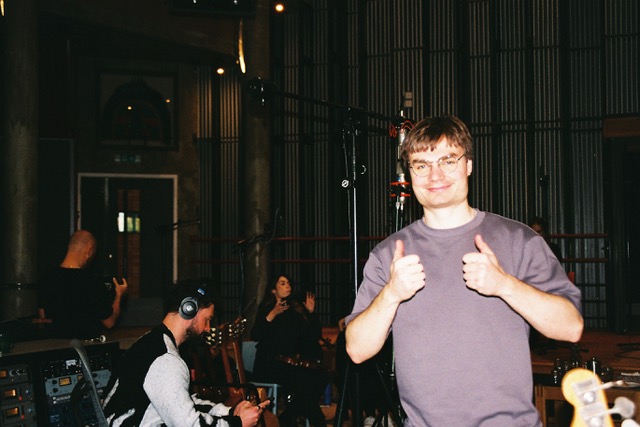
Ear Candy Moments
What’s your approach to using effects pedals in the studio?
I’m a big believer in giving recordings as much individuality as possible. Manipulating sounds with effects pedals feeds into that in a big way. That kind of ear candy can make the difference between good production and great production. Those ear-candy moments are opportunities to put your sonic stamp on the recording. Using a familiar chain of effects pedals as outboard makes that process straightforward.
I think it’s important as an engineer to inspire through sound. Whether that’s making things sound clear or giving fresh life to something in a way the musician finds inspiring. I always have that in the back of my mind: how can I make this more inspiring for the musician who’s playing? Effects pedals are one of the best ways to do that.
"Those ear-candy moments are opportunities to put your sonic stamp on the recording."
BOSS Favorites
What are some of your favorite BOSS pedals?
Firstly, I don’t think I’ve ever seen a pedalboard without a BOSS Chromatic Tuner on it. They’re an industry standard. But I think chorus might be my favorite effect. I’ve used a CH-1 Super Chorus for a long time, and I’ve certainly had a lot of use out of it.
I love the BOSS RE-202 Space Echo, which I first used with Chris Turpin from Ida Mae and Mirador—the new band he co-fronts on guitar and vocals with Jake Kiszka from Greta Van Fleet. When we met at Real World Studios, Chris had just gotten his RE-202, and we were discovering how incredible it is. There’s an original Roland RE-201 Space Echo at Real World, but the BOSS RE-202 is mind-blowing. The extra features are amazing; I especially love the swell functions.
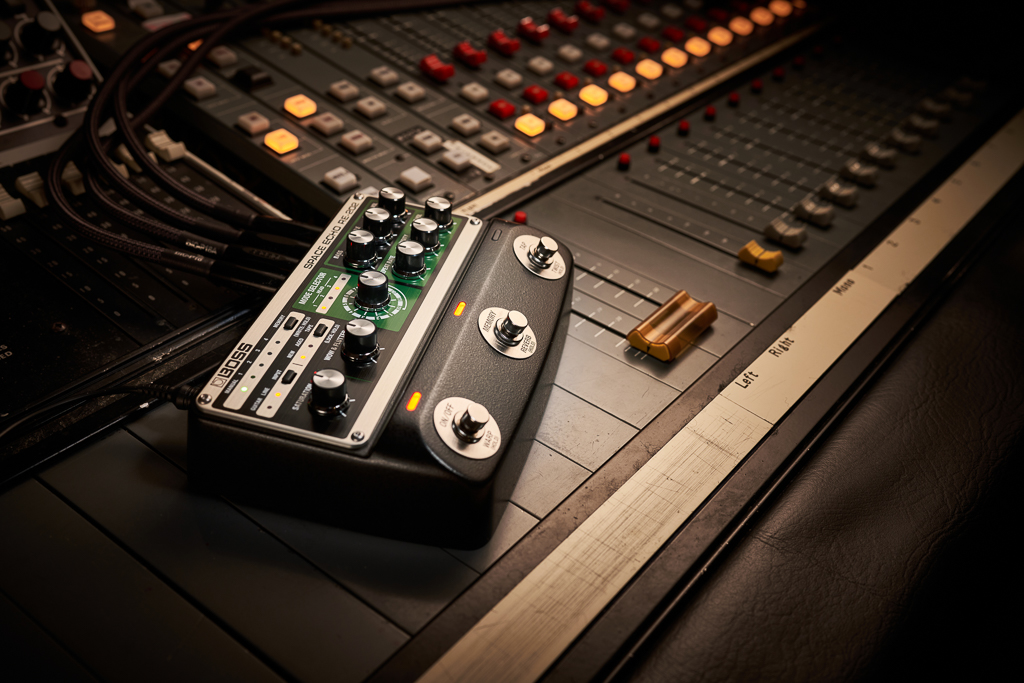
Loop Station Revelation
What was your first BOSS pedal?
The RC-1 Loop Station was my first BOSS pedal. There are so many creative ways to use the RC-1. It’s really cool. Having a single Loop Station pedal on your board can be incredibly useful for creating motifs and glitches. Musicians can use Loop Stations in so many ways creatively. I’ve used BOSS Loop Station pedals a lot for songwriting and building ideas, too—especially the RC-300.
"Musicians can use Loop Stations in so many ways creatively."
How do you like to use BOSS Loop Stations in the studio?
I like to use them in an ambient context for recording. For example, I’ll create a pad and put it on an infinite loop. If you’re working on a DAW with a set BPM and have a consistent, sustained note that you’ve recorded with a Loop Station, it can sound really cool if it’s not perfectly in time. It creates an element of randomness every time the loop repeats.
These days, a lot of music is precisely synced up, so anything that stands out by adding variation is valuable, in my opinion. It can be great for things like pads and sustained notes—especially for vocal effects. James Blake does stuff like that live and in the studio.
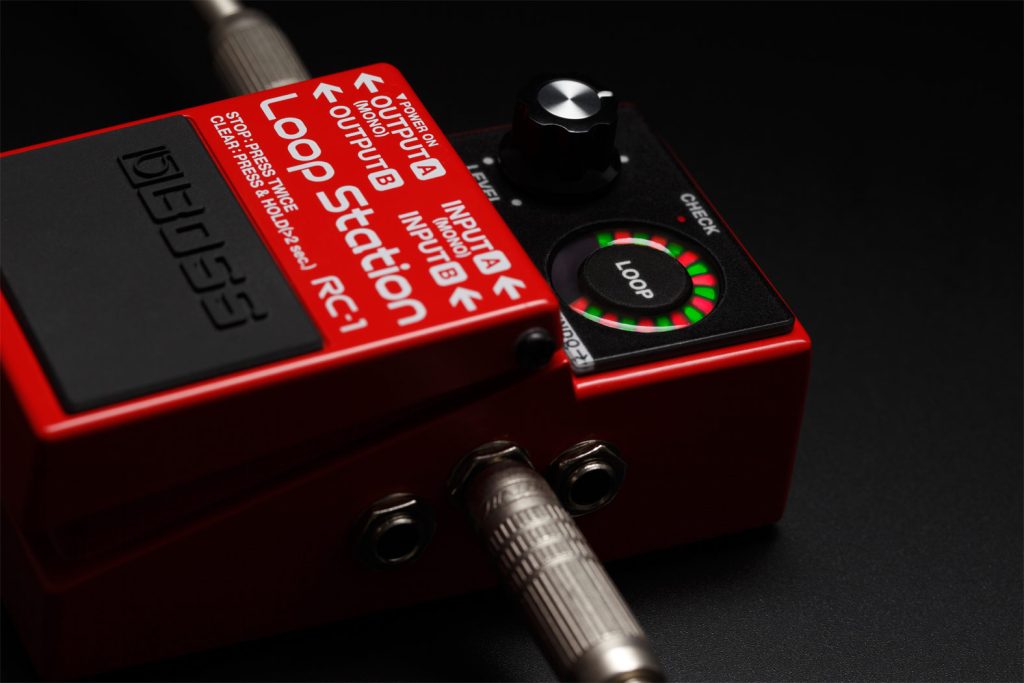
Essential Delays
Which other BOSS pedals do you use?
I’ve used the DD-3T Digital Delay a lot. That pedal isn’t overcomplicated, but there’s so much you can do with it. Along with the BOSS RE-202 Space Echo, I think it’s all you could ever wish for delay-wise.
"The DD-3T is awesome for creating interesting percussion textures."
How have you used the DD-3T Digital Delay in the studio?
The DD-3T is awesome for creating interesting percussion textures. I like to dial the feedback on full so it constantly repeats, and then connect a spring reverb that I play percussion parts into. All these weird percussion elements that were single transients then feed back and repeat, creating interesting textures that become a continuous part.
The DD-3T is cool because you can use the tap tempo option to keep the repeats in time and tight with the project. Or you can keep it loose and moving between the beats. Depending on what you’re doing, both scenarios are equally valid. It’s great to be able to do both. I also like to adjust the delay time and feedback knobs on the fly to create swells that can rise or fall in pitch.
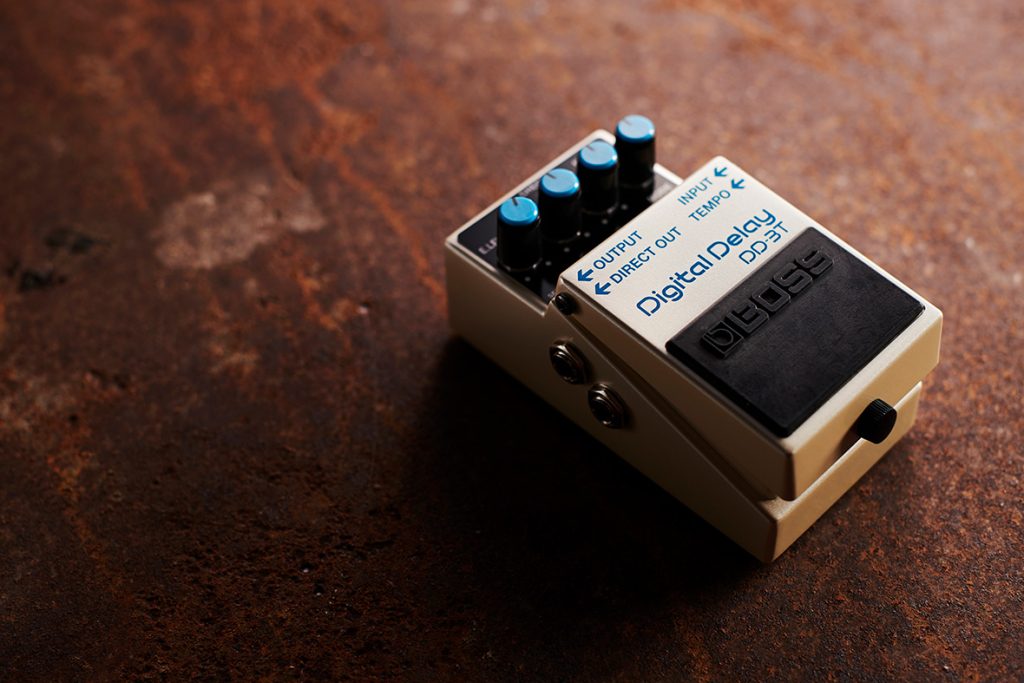
The New Outboard
Do you often adjust pedal knobs on the fly as part of a performance?
Always. I do that all the time. I feel like guitar pedals are the new outboard effects. I always have a reamp box set up so that I can use my pedalboard as outboard equipment. Anything can be sent to it from the studio. It’s just a mono input that can be sent to my pedalboard, and then it comes back in stereo.
Give us a typical example of how you use pedals in the studio with James Blake.
Say James is playing keys or somebody’s playing guitar; I can send that sound through my pedalboard and create interesting textures with whatever they’re playing. I can then feed that back into their headphones. You get results you can’t achieve any other way. It’s really exciting. Being hands-on with effects pedals is the best.
"Say James is playing keys or somebody’s playing guitar; I can send that sound through my pedalboard and create interesting textures."
Sonic Discovery
During takes, I’ll often experiment by adjusting pedal parameters to get interesting effects. Or maybe I’ll record a bit with a Loop Station, play the loop back, and manipulate it as it’s running. That way, you can almost create synth parts underneath what they’re playing. It’s a fun and inspiring way to record.
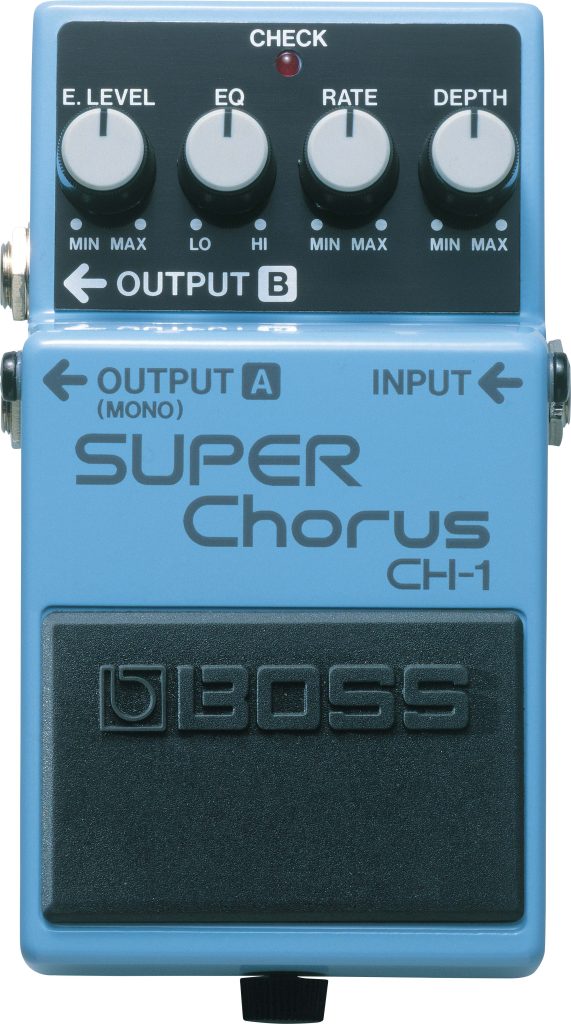
Do you find effects pedals inspiring in terms of spontaneity?
Yes, 100 percent. I don’t mark my pedals or write down presets; I do it on the fly every time. I treat every sound as something entirely new. That beginner mindset of discovering something as you hear it is priceless. It creates totally unpredictable results. I’m a big believer in the beginner mindset of just going for it and listening. It makes you way more present as a creator, as opposed to just repeating a process.
Because my pedalboard is set up by the side of the desk as outboard, it’s very inviting to play with them. As a human manipulating the parameters, you’re bound to introduce that element of randomness that yields incredible results. I also like to encourage other people in the room, other band members, to get involved with the pedals and see what they can come up with. It’s really enjoyable and inspiring.
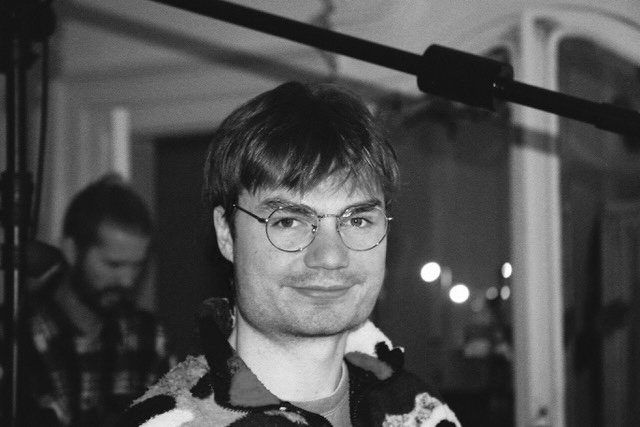
Keep It Fresh
Have you ever noticed yourself repeating the same thing?
If I ever notice I’m repeating something too much, I’ll swap a couple of pedals out and put something in that I’ve never used before or that I don’t know very well. Straight away, it feels like a whole new world again.
Have you used any BOSS gain pedals?
I’m not very familiar with BOSS overdrives or distortion pedals, personally. But I was doing a session with John Parish once, and he was using some gain pedals to run vocals through—which sounded great!



